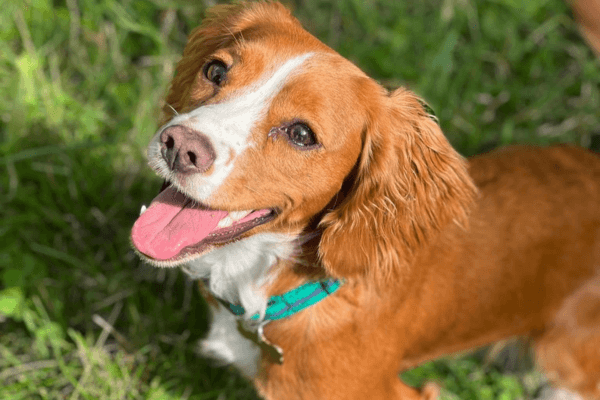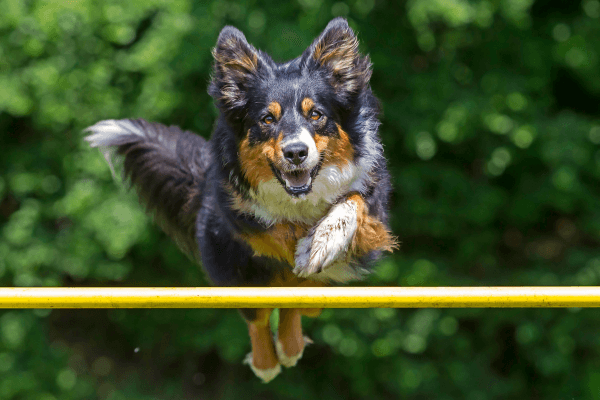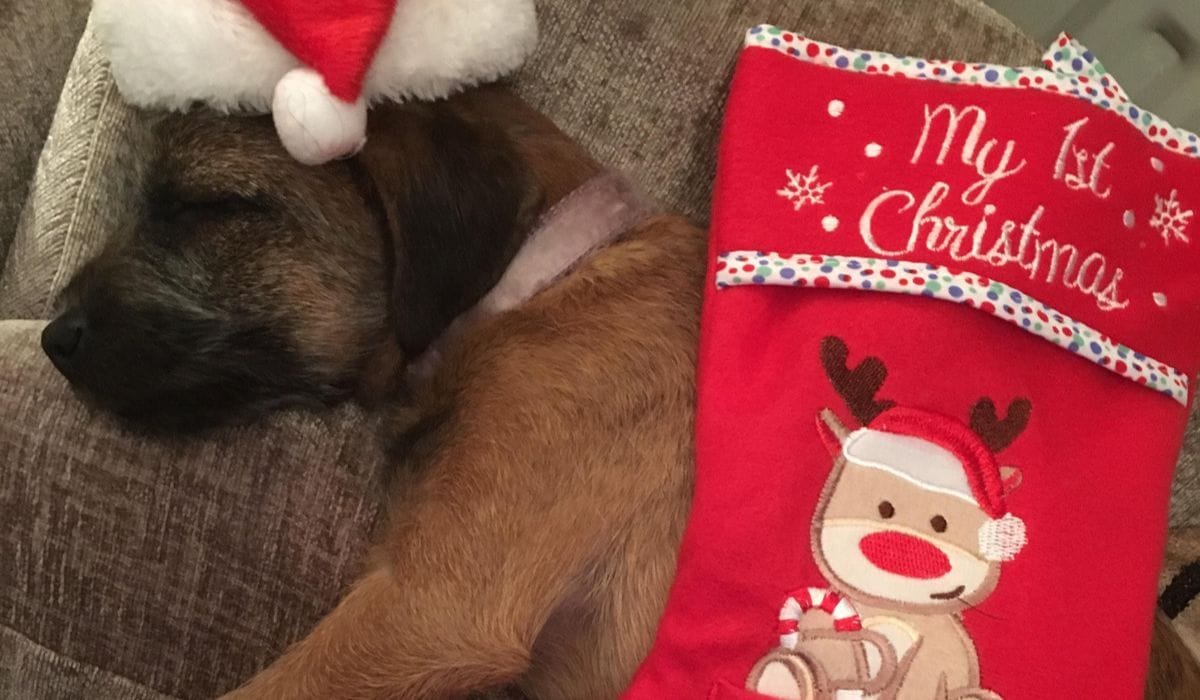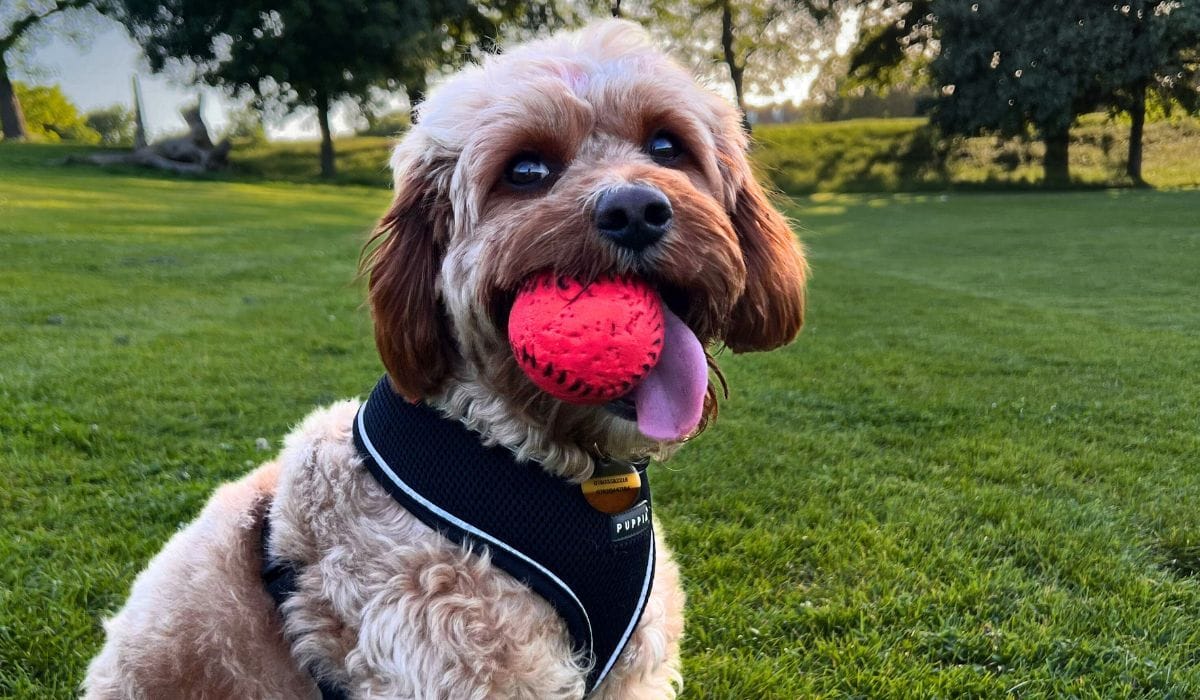Brushing your dog is useful for maintaining a healthy coat. Aside from removing dirt that’s caught in their fur, brushing also spreads natural and beneficial oils across your dog’s skin.
Unfortunately, not all dogs like being brushed. Ok, so some love it, but there's some that only tolerate it, and there's also others that move away or even become defensive and upset. And continuing to groom a dog that doesn’t enjoy it, can often make the problem worse.
But there's good news! Teaching a dog to enjoy being brushed can be relatively easy. Here’s a step-by-step process using only positive training methods. Although this won't work with all dogs, it can benefit a lot of them!
Pre-training: Check for medical conditions and the right tools
- Before starting any brushing, it’s important to check your dog isn’t suffering from any health condition that could put them off getting groomed. Skin conditions, such as bacterial infections, wounds and hot spots can make brushing uncomfortable. Some dogs can also dislike brushing because they have pain in their joints or back. If you're not sure, ask your vet if there could be any medical reason why your dog doesn't like being brushed.
- You should also check you’re not using a brush that’s too hard or rough for your dog. Brushes with metal bristles, for example, should always have protective ends to avoid pain. Make sure you research which type of brush is best for your dog’s coat too.
- It’s also important to avoid pulling on knots. Instead, use a combination of detangler spray and a soft brush to gently tease out minor knots. Some of these knots may need cut out, so for severe matts or tangles, contact a professional groomer.
Step 1: Desensitize your dog to the brush
- The first step is to link the brush with a positive reward. This is to try to desensitize your dog to the brush. In many cases, the best reward to use is a tasty treat, although some dogs are more motivated by toys and play.
- Start by teaching your dog that good things happen when the brush appears. Leave it on the ground so the dog can safely check it out, then allow them to investigate it. If they need encouragement, place a few treats near the brush.
- The next step is to repeat the process while you hold the brush. Let your dog come over in their own time, then give them treats and praise whenever they look at it or have a sniff. At this stage, don’t attempt to brush or even move towards the dog – you’re simply showing them that the brush is nothing to be scared of, and in fact is a positive thing that brings treats!
- Take your time with these steps. It’s important that your dog is completely comfortable being around the brush before moving to the next stage.
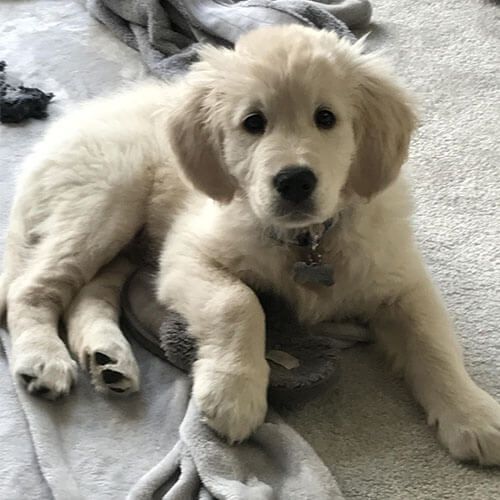
Step 2: Practice light touching
- Once your pet is happy to be near the brush, you can progress to gentle touching. It’s vital that you take this slowly, as rushing the process can ruin the positive association you’ve been working so hard on.
- Begin by gently touching the dog with the brush, while giving them praise and lots of treats. Don’t hold your dog or force them to keep still. Make sure to allow them to walk away if they feel uncomfortable.
- The first touches should be calm, short and on a non-sensitive area of the body. The chest, below the chin is a great choice, as your dog can see the brush and what you are doing clearly.
- Gradually increase the time the brush is touching the body, until you can hold it there for several seconds. Then progress to gently brushing with one or two strokes on different areas of the body, while continuing to give treats and praise.
Step 3: Build towards regular brushing
- When your dog is happy to be gently brushed, you can start normal brushing. The progression should be slow, and you should always watch for signs of stress or anxiety. If your dog moves away or seems uncomfortable, you’ve progressed too fast, so take a break.
- Take a few brush strokes, then reward and give treats before brushing some more. Keep sessions short, fun and positive. It’s much better to practice brushing daily for a few minutes, than longer sessions once a week.
- It’s best to avoid tackling major tangles until your dog is comfortable being brushed, as these can be painful to remove. Never get frustrated or angry when brushing, as this teaches your dog there is something to be worried about.
By desensitizing your dog to the brush, and slowly teaching them that brushing is associated with rewards, nearly all dogs can learn to enjoy the grooming process!
Thanks to our guest blogger, Richard. He is a dog expert who is passionate about positive training methods. He's currently head editor of The Dog Clinic, a website dedicated to helping owners learn more about their dog's behaviour.


